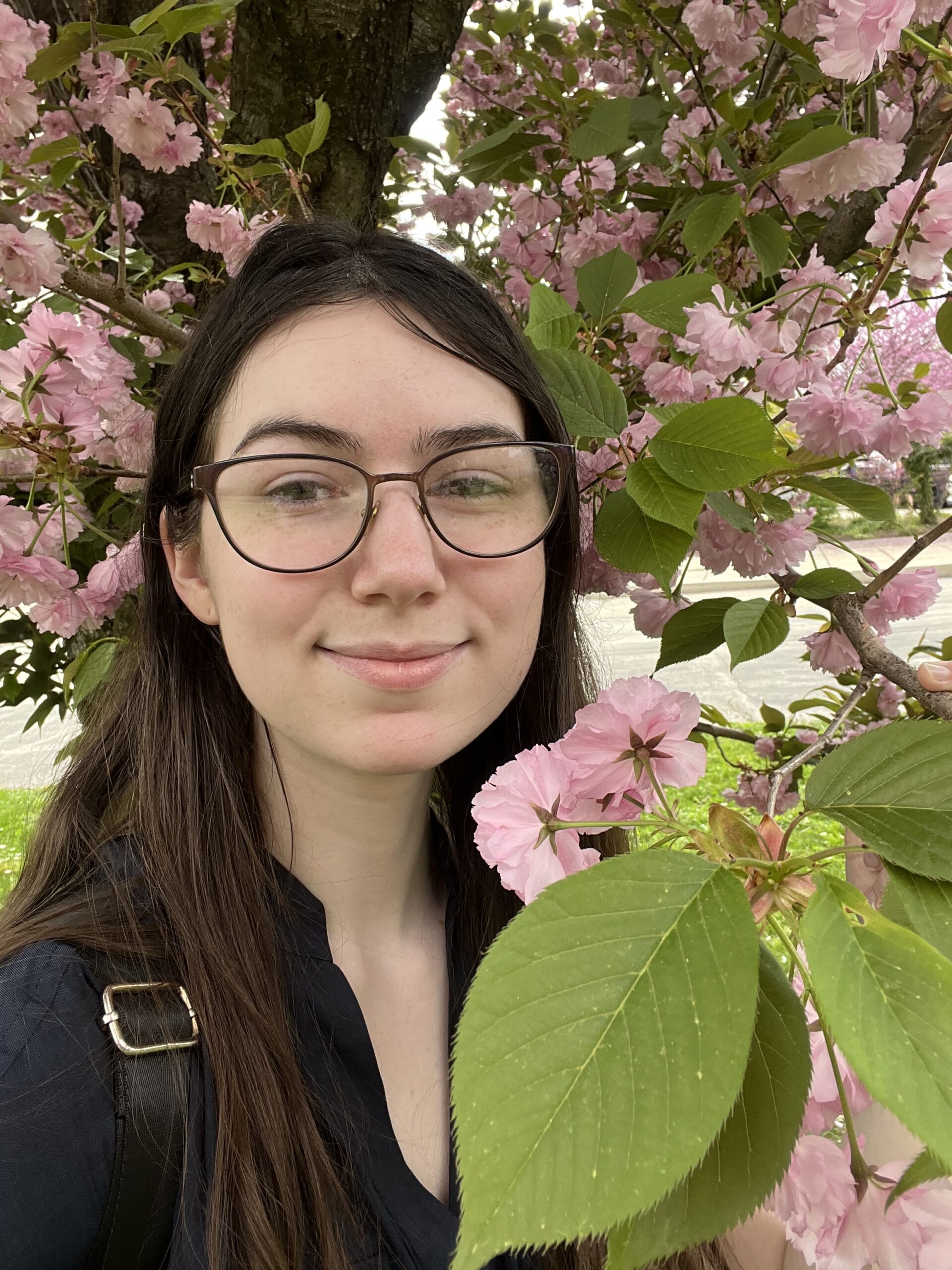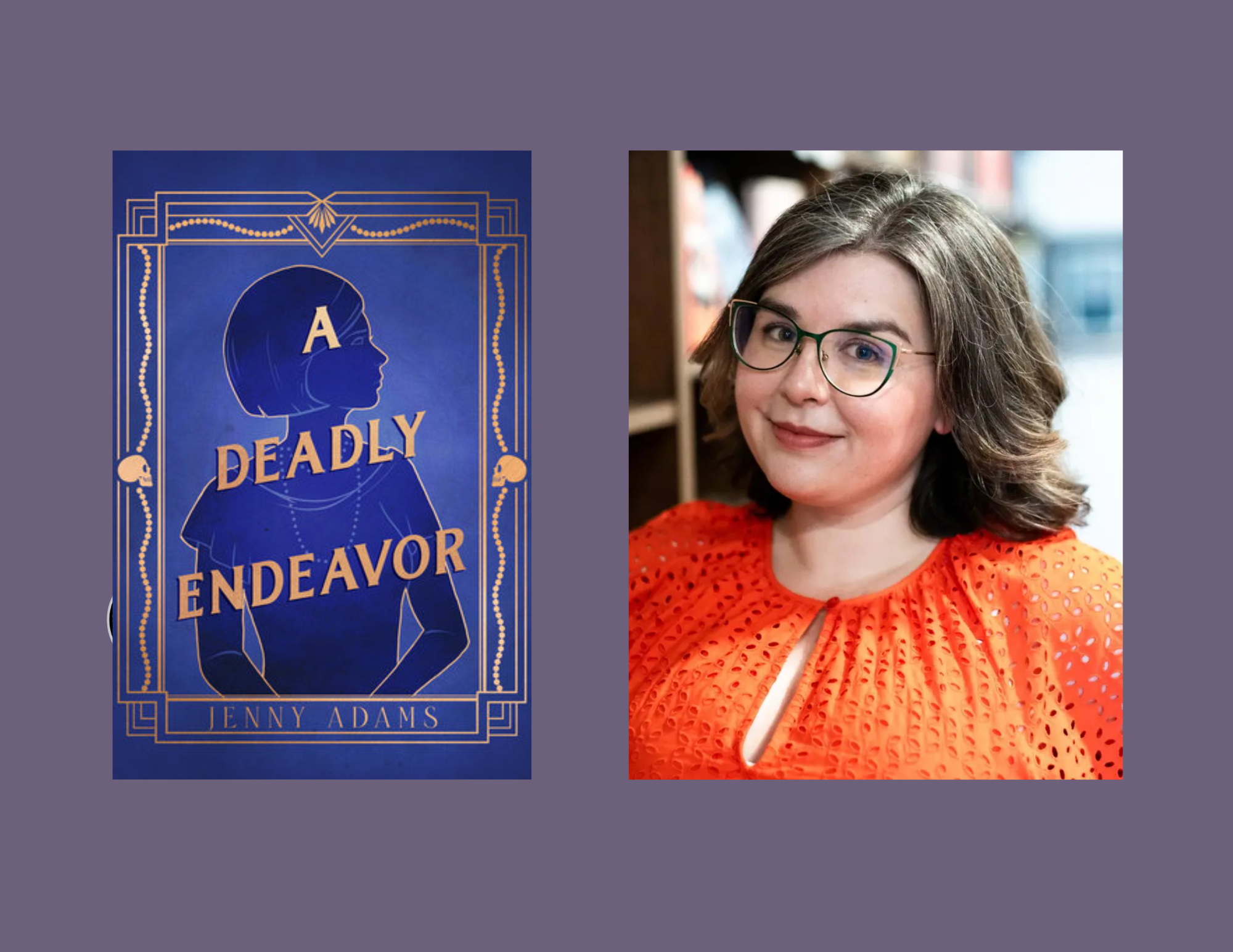Jenny Adams is a librarian and author originally from the Poconos in Northeastern Pennsylvania. She’s had an extensive career in both public and private libraries and holds a Masters in Library and Information Sciences from Drexel University. Her novel A Deadly Endeavor is a historical mystery set in Prohibition-era Philadelphia.
Kalyn Street: Would you say that you’ve always wanted to be a writer?
Jenny Adams: I always wrote. From the time I could hold a pencil and spell words I was writing stories. I have these notebooks that I filled up starting in, like, 2nd Grade of just stories that I was writing.
I didn’t know that writing books was a thing that normal people could do. Authors were like these mythical beings sitting at these beautiful desks and writing and I was making these silly little stories. It wasn’t until I went to a book signing and realized “oh, you are a real human being” that I thought “I can do this, too.”
So, I think I wrote my first serious book—my first manuscript that I tried to get published—right after I graduated college.
KS: Between then and finishing A Deadly Endeavor was there anything else that you published?
JA: A Deadly Endeavor was my seventh manuscript. I self-published a YA fantasy under another name in 2015. I really loved that book, but it also kind of broke me a little bit. I tried so desperately to get that one published and it just didn’t work out. So, I stopped writing for a little while after that. During Covid I started writing again and I wrote manuscripts six and seven really quickly. Six is what got me my agent… and did not sell. And then seven was A Deadly Endeavor. And that was my first book for adults, too. Everything else I wrote was young adult and fantasy.
KS: A Deadly Endeavor is a historical mystery. What inspires you to write stories in this specific genre. Why not historical fiction or mystery? Why combine the two?
JA: I’m actually an accidental historical mystery author. When I first started drafting A Deadly Endeavor I had no idea what it was. Edie, my main character, kind of appeared in my head like a freight-train. She had this story to tell. I’d written at this point a few books that never sold, and they were all young adult fantasy. My agent told me “Jenny, try something new. Let’s move out of the YA space. I think you can write a book for adults.” And I was like, “Let’s try it.”
I’m a huge mystery reader and a huge romance reader, but I’d never written anything other than fantasy. So, in the beginning this book was actually historical fantasy.
Long story short, A Deadly Endeavor went through a lot of changes. By the time it got to my editor it actually still had magic in it. And she was like, “I love this, but there’s like six times you mention magic in the entire book, and I think you actually wrote a historical mystery.”
And I had always loved books like Deanna Rayborn’s Veronica Speedwell series and Sherry Thomas’ Lady Sherlock. As a reader I always gravitated towards the historical stuff. So, I should’ve known. But I didn’t. And that’s my roundabout path to becoming a historical mystery author.
KS: What kind of research about the 1920s and about Philadelphia in that time period did you have to do?
JA: That was always part of it. No matter what. I always knew it was set in Philly, post-World War One. I started writing this book in the beginning of the winter in 2020. I had it set during the 1918 War Bond Parade that spread the influenza through Philadelphia. I’d gone to an exhibit at the Mütter Museum about the Spanish Influenza Pandemic. There were all these great signs: Spit Spreads Death! All that kind of stuff. And then, boom, we were in our own pandemic.
I got to do a lot of really cool research using the maps collection in the Free Library of Philadelphia. There’s a lot of digitized material at the city archives. If you plug in an address, you can actually see what the archives have all around that area. I taught at Springside Chestnut Hill Academy. And I made Edie a Springside girl because the school existed then. And I was able to find pictures of what campus looked like 100 years ago. The city also has digitized trolley maps. I had to figure out how I was going to get Lizzy from Center City to Manayunk to Chestnut Hill. What trolley would she take? They actually mirror a lot of the modern SEPTA bus routes, which was really cool.
The house that we lived in in Manayunk became Gilbert’s parents’ house. Really so much of it was based on my love of the city of Philadelphia and these places that were so vibrant and real in my life. And then trying to extrapolate backwards and seeing what these buildings looked like 100 years ago. And the fact that the library had all these things was amazing.
KS: The characters in your book are being challenged by a lot of the same conservative norms we have today. Do you think the story offers any commentary on how a lot has stayed the same in our culture since the 1920’s?
JA: Yes. It is fascinating how little has changed. We think that we are so much more modern and advanced and thoughtful and compassionate than our great grandparents and our great-great grandparents. The 1920s, I think, parallels our current life in so many ways. It is a society on the cusp of changing drastically because of technology. There is dramatic social upheaval, there is a lot of economic disparity that mirrors our own reality. There’s so much. And it was really interesting to build these people who felt so real and modern and show just how relatable they are to the lives we are living now.
KS: Do you have any advice for people who are just starting out trying to get something published?
JA: So, you have a manuscript that you’ve already written. The first thing is to find someone else to look at it. Someone that’s not your partner or your best friend or your mom. All of those are very valuable people to have in your life and you need them as cheerleaders. But find somebody that’s maybe a stranger, or somebody whose opinion you respect, and have them read it.
And realize that just finishing the book is amazing and I’m so proud of you for doing that, but you’re going to have to do a lot more work. It’s going have to be edited and revised… and revised and revised and revised. And, once you start sending it out, you’re going to get “no’s.” You’re going to get a lot of “no’s” unless you’re a unicorn. And those “no’s” can feel really personal. But they’re not. You have to separate yourself from your work. Your work is what’s being rejected. You as a human being are not being rejected. I think as creative people we are sensitive souls, and it’s really easy to take these things personally, but if you want a career, if you want to do this long term, you’re going to hear “no.” But I like to think of every “no” as just a “not yet.” Keep going.
Learn more about Jenny Adams on her website here and order A Deadly Endeavor here.

